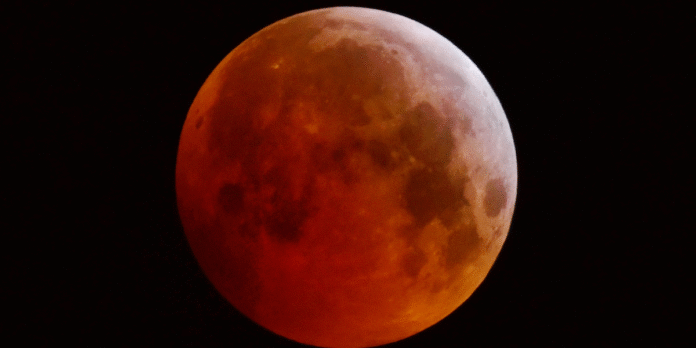Astronomy enthusiasts in the Andaman & Nicobar Islands, along with viewers across India, will have a rare opportunity to witness a total lunar eclipse on the night of September 7–8, 2025. Officials have emphasized that no special equipment is needed to observe the eclipse, which is completely safe to view with the naked eye. Members of the public can enjoy the spectacle from their respective locations, provided the skies remain clear.
The celestial event will unfold in stages throughout the night. The penumbral phase of the eclipse is expected to begin at 8:58 pm on September 7, gradually progressing into the partial eclipse phase at 9:57 pm. The total eclipse, when the Earth’s shadow fully covers the Moon, is set to commence at 11:00 pm, reaching its maximum at 11:41 pm. By the early hours of September 8, the total eclipse will end at 12:22 am, followed by the conclusion of the partial phase at 1:26 am and the penumbral phase at 2:25 am. This sequence will be visible across the entire country, giving residents from various regions a chance to witness the phenomenon.
A total lunar eclipse occurs when the Earth passes directly between the Sun and the Moon, casting its shadow over the lunar surface. During this alignment, the Moon does not vanish entirely but instead often adopts a reddish tint. This effect, popularly known as a “Blood Moon,” results from sunlight being filtered and scattered through the Earth’s atmosphere before reaching the Moon. The dramatic change in color and the gradual progression of the eclipse make it one of nature’s most captivating astronomical events.
Astronomers note that lunar eclipses provide a unique chance for both amateur and experienced skywatchers to observe celestial mechanics in action without the need for telescopes or protective eyewear. While total lunar eclipses occur more frequently than solar eclipses, each event remains a striking spectacle due to the Moon’s transformation and the extended period over which the eclipse can be observed.
Residents of the Andaman & Nicobar Islands and other parts of India are encouraged to plan their viewing in advance and hope for favorable weather conditions. With the Moon poised to take on a glowing red hue, the September 7–8 eclipse promises to be a memorable event, offering the public a rare and visually stunning connection to the workings of the cosmos.





